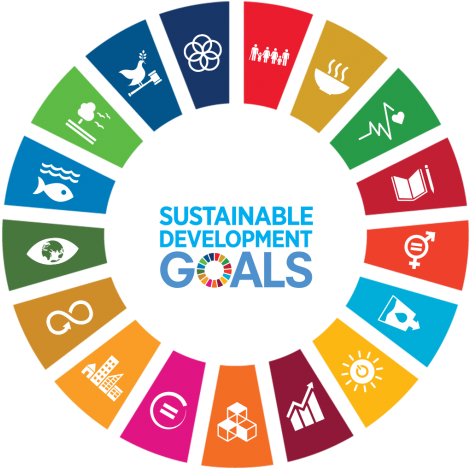Tinta Emas
In Collaboration with:
Society:
Ikatan Pesantren Indonesia
Institution:
Institut Elkatarie
Retractions–Withdrawals–Corrections (R-W-C) Policy
Retractions–Withdrawals–Corrections (R-W-C) Policy
We keep the scholarly record accurate and trustworthy. This policy explains how SEHATI handles Corrections, Withdrawals, Retractions, and Editorial Expressions of Concern. We act proportionately, communicate clearly, and preserve access to the historical record whenever possible.
1) Scope
Applies to all content (research, reviews, editorials, data notes, and supplements). Notices are open-access, promptly issued, and bi-directionally linked to the affected article.
2) Definitions
- Correction (erratum/corrigendum/publisher’s note): fixes factual or production errors without undermining core conclusions.
- Editorial Expression of Concern (EEoC): alerts readers to serious, unresolved issues while an investigation is pending or inconclusive.
- Retraction: issued when findings are unreliable (error/misconduct), publication is redundant/duplicate, ethics are breached, or legal/rights issues arise. Article remains online with a clear “Retracted” label plus a citable notice.
- Removal (exceptional): used only when legal rights or safety require taking down the full text; a public tombstone note remains.
- Withdrawal (pre-publication): termination of submission before acceptance/publication; the submission record may be retained.
3) Typical Criteria
- Corrections: numeric mistakes; mislabeled figures/tables; author/affiliation errors; minor methodological clarifications; production faults.
- Retractions: pervasive analytical error; plagiarism or image/data manipulation; duplicate/salami publication; fabricated data or references; undisclosed conflicts; serious ethics breaches.
- EEoC: credible concerns pending inquiry or when outcomes cannot be obtained.
- Removal: court orders, defamation, privacy exposure, or acute risk.
4) Who Can Raise a Case?
Editors, authors, reviewers, readers, institutions, or funders may report concerns with documentation. We also consider credible third-party alerts (including post-publication peer review).
5) Process Overview
- Initial assessment by Editors to classify (correction / EEoC / retraction / removal); external advice or institutional contact may be sought.
- Notification & response to authors with a time-bound opportunity to reply and provide evidence.
- Decision & notice proportionate to the issue; notices are citable, clearly labelled, and linked bi-directionally.
- Indexing & archiving ensure permanence and version history; prior versions remain accessible when feasible.
6) What Each Notice Includes
- Article title, authors, DOI/citation, date of notice, and issuing party.
- Clear reasons for action and (where available) investigation outcomes.
- For retractions: who initiated (authors/editors/joint), whether misconduct was confirmed.
- For corrections: specific changes and where they occur in the article.
- For EEoC: the unresolved nature of concerns and next steps.
7) Timelines
We act as swiftly as the evidence allows. EEoCs may appear during investigations; corrections and retractions are issued once facts are established to a reasonable standard.
8) Retraction Principles
- Retractions correct the literature and are not punitive per se.
- Retracted items remain online with a clear “Retracted” watermark/label and links to the notice; metadata stay discoverable.
- In exceptional cases, removal replaces the full text with a public tombstone page.
9) Withdrawal (Pre-Publication)
Before acceptance/publication, authors may request withdrawal with justification. The submission record may note the withdrawal. Post-acceptance withdrawals are exceptional and, if already published ahead-of-print, may require a retraction.
10) Roles, Transparency, and Right to Reply
- Editorship: the Editor-in-Chief (or delegate) makes final decisions, guided by evidence and, where relevant, institutional input.
- Authors’ reply: authors are given a fair opportunity to respond before decisions are finalised, except in urgent legal cases.
- Public record: notices are open-access, citable, and permanently linked.
11) Non-Exhaustive Examples
- Correction: a transcription error in a table; swapped panel labels; affiliation updates.
- Retraction: fabricated survey responses; image splicing; duplicated publication; manipulated regressions; paper-mill content; undisclosed AI authorship.
- EEoC: credible allegations under university investigation with no available timeline.
- Removal: court order; inadvertent exposure of personally identifiable information.
12) Plain-English Notice Templates
Correction
Correction to: [Article title], [Authors], [SEHATI, Year, Volume(Issue), Pages], DOI: [DOI].
Following publication, the following errors were identified: [brief list]. The article has been updated accordingly; the conclusions remain unaffected. Date of correction: [DD Mon YYYY].
Editorial Expression of Concern
The Editors of SEHATI issue this Expression of Concern for “[Article title]” (DOI: [DOI]) due to [nature of concern]. We are working with the authors and relevant institutions. This notice will be updated or followed by a correction or retraction when the process concludes.
Retraction
Retraction: [Article title], [Authors], [SEHATI, Year, Volume(Issue), Pages], DOI: [DOI].
This article is retracted due to [reasons—e.g., unreliable findings from major analytical errors / confirmed plagiarism / duplicate publication / ethical non-compliance]. The authors [agree / disagree] with this retraction. The original article remains online for the scholarly record and is labelled “Retracted”. Date: [DD Mon YYYY].
Removal (exceptional)
This item has been removed following legal or safety considerations: [brief legal/safety basis]. A basic metadata record is retained. Date: [DD Mon YYYY].
13) Versioning and Archiving
We maintain version control and archive prior states. Notice pages are citable and included in the Table of Contents for discoverability.
14) Effective Date and Review Cycle
Effective: 1 February 2024











